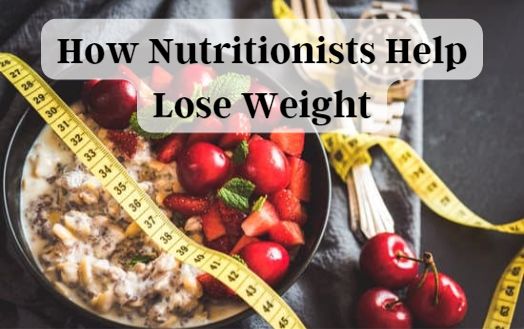Do you want to improve people’s diets and lifestyles? Have you considered becoming a nutritionist but were unsure of the salary? If yes, read on.
Nutritionists should know how much money they can make in Australia. Knowing your earning potential is crucial if you’re considering becoming a professional nutritionist.
I’ll explain nutritionist salaries in Australia, from average to top earners, in this article. Learn how much money a qualified Australian nutritionist can make. In this article, you will know how much does a nutritionist earn in Australia.
Understanding The Roles Of Nutritionists In Australia
Food and nutrition scientists are nutritionists. They advise on nutrition, lifestyle, and disease prevention. Many nutritionists in Australia take courses and register with professional bodies like Nutrition Australia or the Dietitians Association of Australia (DAA), though there is no official qualification or registration.
Location, experience, and qualifications determine the average Australian nutritionist’s salary. Payscale reports a median annual salary of $68K AUD for registered dietitians in Melbourne. An entry-level nutritionist may earn $50,000 AUD. Experienced nutritionists earn more.
Qualifications, experience, and industry demand affect Australian nutritionist salaries. Understanding these factors can help aspiring nutritionists choose a career and an income. With this information, let’s examine some of these influencing factors.
Factors Influencing Nutritionist Pay
Australian nutritionist salaries depend on qualifications and experience. Qualified people earn more. Due to their expertise, registered dietitians who have completed an accredited nutrition and dietetics program earn more than other nutritionists. Nutritionist salaries also depend on experience. Long-term practitioners earn more.
According to various sources, Australian nutritionists earn $60,000–$80,000 AUD annually (before taxes). Location and job type may affect this range. A hospital-based nutritionist may earn more than a private practitioner. Before deciding how much to earn as a nutritionist in Australia, one should research available positions.
If you want to become a nutritionist in Australia, investing time in additional education and qualifications will boost your earning potential when applying for jobs.
Average Salary Of An Australian Nutritionist

Australia’s average nutritionist salary depends on many factors. Experience, education, and role determine salary. Due to greater responsibility, dietitians earn more than nutritionists.
Australian nutritionists earn $50,000–$85,000 per year, with experienced professionals earning more. Breakdown: Beginning nutritionists: Experienced Professionals: $70K-$80K Highly Experienced Professionals: $90K+
These figures show that becoming a nutritionist in Australia requires hard work but can lead to lucrative career opportunities. One could become a top earner in this field with the right training and experience. Let’s examine the growth of Australian nutritionist jobs.
Job Growth Prospects For Nutritionists
You’re probably curious about the growth of nutritionist jobs in Australia. Depending on experience, a qualified nutritionist earns $60,000 to $90,000. Nutritionists can also work as dietitians or food scientists, which pay more.
Due to Australians’ growing health consciousness, nutritionists’ job prospects are good. Nutritionists are needed more as people seek healthier lifestyles. This has opened doors for experienced practitioners who want to help others improve their diets and lifestyles.
With flexible work hours and room for creativity, this career path can be very rewarding, both professionally and personally. Australian nutritionists’ prospects are bright. Compare industry salaries now.
Comparison Of Salaries Across Different Industries

Nutritionists are in demand in the health and wellness industry. Australian nutritionists earn how much? Let’s examine industry salaries to answer this.
A salary website shows that Sydney nutritionists earn $75,000 per year on average. Education, experience, and specialization affect this salary range. Hospital nutritionists earn more than private practitioners or community-based health workers. Nutritionists receive bonuses and superannuation contributions from their employers.
Nutritionist salaries vary widely by state. According to PayScale, dietitians and nutritionists earn $84,000 in Victoria and $79,000 in New South Wales. These figures may not reflect what most health professionals make because they depend on qualifications and experience.
Comparing nutritionist salaries across industries shows how important professional qualifications and certification are.
Professional Qualifications And Certification Requirements
Australian nutritionists need certain qualifications and certifications. Some may need more training or certification than general practitioners, depending on their field of practice.
The most common requirement is a degree from an accredited university program in food science, nutrition, or dietetics, but other relevant post-secondary degrees and certifications can also qualify. Dietitians Australia recommends becoming a “registered dietitian” to help people develop healthy eating habits and reach their nutrition goals. This requires studying human biology, biochemistry, and nutrition and working with clients under the supervision of a qualified professional.
Many states require additional certification, such as in sports nutrition or public health, which could boost your salary. These qualifications and certification requirements determine how much does a nutritionist earn in Australia.
Additional Skills Or Training That Can Increase Salary Potential

After professional qualifications and certification, nutritionists should consider training that can boost their salaries. Career advisors recommend certifications in sports nutrition, food science, health promotion, or pediatrics to boost salaries. Certifications demonstrate knowledge and make candidates more appealing to employers. Management courses teach leadership and help nutritionists get higher-paying jobs like senior dieticians.
Experienced teachers should consider part-time teaching at universities, TAFEs, and other education institutions while working full-time to increase their income. Those who have worked in various settings may be able to move into consulting and charge fees based on their services, which would naturally result in higher earnings than if employed by an organization.
Attending industry conferences and seminars is essential for aspiring nutritionists. Staying current boosts your chances of landing high-paying jobs. You can achieve anything with the right qualifications, experience, and marketable skills. Next, nutritionist earnings tips.
Tips To Maximize Your Earnings As A Nutritionist
Nutritionists in Australia can earn more in several ways. Staying abreast of industry trends and what other professionals are doing to advance their careers is one way. Company reviews can show how much people with similar backgrounds and qualifications earn at certain companies or in certain positions. Health, wellness, and gut health courses will also give you an edge when applying for specialized jobs.
Networking with successful peers is another great way to learn how they managed their careers and what strategies they used. Ask if they know of any opportunities in their organizations or elsewhere. Finally, employers often seek experienced professionals with knowledge beyond traditional education requirements, so staying current with job postings can be beneficial. These tips may help you find jobs that match your experience level.
Employment Opportunities For Experienced Professionals

Now that you know how to maximize your nutritionist earnings, it’s important to understand the employment opportunities for experienced nutritionists. Nutritionist salaries depend on experience, location, and job type. Salary expectation tips:
- Determine Australian nutritionist salaries. This will give you a range depending on where you live and if you work full-time or part-time.
- Find experienced professional jobs. Private practice, corporate wellness, and consulting jobs all pay well.
- Consider Professional Goals: Cost-benefit analysis can help you choose a career path that meets your professional goals when evaluating job offers.
Nutritionists make different amounts of money depending on where they live and work, but with enough research and exploration, one can find a role that suits their skillset and lifestyle. With these tips in mind, let’s look at Australia’s nutritionists’ cost-benefit analysis.
Cost-Benefit Analysis For Becoming A Nutritionist In Australia
Do a cost-benefit analysis before becoming an Australian nutritionist. Nutritionists pay tuition, professional registration, and relocation fees. These accumulate quickly. However, being a nutritionist has many benefits: job security as demand grows for qualified professionals; flexibility over working hours; and a competitive salary depending on where you work in Australia.
Nutritionist salaries depend on education and experience. Beginners earn $50k–$70k per year, while more experienced practitioners earn $90k–$120k. Writing articles or books or consulting can also boost income.
If someone has the skills and qualifications, becoming a nutritionist can be financially rewarding. Successful nutritionists in Australia can expect long-term financial rewards with smart planning, a clear understanding of all requirements, and dedication to their profession. As we discuss nutritionist types and salaries, it’s worth noting that this field has promising prospects.
Different Types Of Nutritionists And Their Salaries

Nutritionist salaries in Australia vary by job. Dietitians with degrees or post-graduate training in dietetics and food science earn more than other nutritionists. Dietitians earn about $80,000 per year. Undergraduate nutritionists can earn $50,000–$70,000 per year. Some nutritionists earn six figures, depending on their experience and qualifications.
Sports nutritionists, who specialize in exercise and performance nutrition, earn more. Qualifications, experience, location, and industry sector affect nutritionist salaries. Additionally, many employers offer bonuses for good performance, which can boost earnings.
Before becoming a nutritionist, consider job satisfaction, career advancement, and financial rewards.
Job Satisfaction And Career Progression Opportunities
Salary questions for Australian nutritionists are often asked. Job satisfaction and advancement are more important than money. Dietitians work in hospitals, private practice, public health, and research. Management or consulting positions may also be available.
You’ll gain experience while helping people achieve their nutritional goals and improve their quality of life in any niche. Working with clients lets you see how your advice helps them, which many other jobs don’t. As part of CPD, you can become a pediatrician or diabetes counselor.
Several networks and organizations offer nutritionists and dieticians resources for learning new skills and staying up-to-date on industry trends. This keeps nutritionists and dieticians competitive for years after graduating. These benefits offer many non-financial rewards, motivating those interested in this profession to excel.
These factors make a career rewarding and allow professionals to change patients and populations.
Benefits Of Being A Nutritionist In Australia
As with any profession, nutritionists in Australia earn based on where they live and their experience. However, nutritionists typically earn between $70,000 and $90,000. This is higher than most health care jobs.
Australian nutritionists have many benefits beyond their earning potential. First, if you specialize in clinical or community healthcare, you can work flexible hours while helping those in need. Working in these environments gives you access to cutting-edge equipment for more accurate diagnosis and treatment plans, which could help patients reach their nutritional goals.
Finally, becoming a nutritionist means joining a unique professional network of passionate food science and nutrition researchers from around the world. This offers unparalleled career development and networking opportunities, which could help you find the right position in the field faster than job hunting alone.
Finding The Right Position For You

Finding a nutritionist’s job in Australia can be difficult. Consider salary and job duties when applying for jobs. This is important because it will affect your lifestyle and career.
Depending on their experience and qualifications, Australian nutritionists are paid hourly or annually. Australian nutritionists earn $60–90 per hour, or $65,000–85,000 annually. However, location, work environment, and other factors greatly affect salaries. Experienced nutritionists may also earn more.
Find a job that matches your goals, values, and interests and pays well. Take your time to research the many nutritionist jobs in Australia before choosing one. You can find your dream job with some thought and effort. Next, “Conclusion: Is Becoming a Nutritionist Worth It?”
Conclusion: Are Nutritionists Worth It?
Finally, nutritionists in Australia can make good money. Nutritionists earn more than the national average at $90,000. It’s appealing to those seeking a career that pays well and improves lives. Nutritionists have many job opportunities in healthcare and food services, allowing them to work with diverse clients on various projects.
One should weigh the pros and cons of becoming a nutritionist. You can help others improve their health through diet and lifestyle changes, but long hours and stressful clients or cases are drawbacks. However, being a nutritionist may suit you if you love helping others live healthier lives.
If you want to make good money and change people’s lives, becoming a nutritionist may be worth it. Now you already know how much does a nutritionist earn in Australia.
FAQ
What Is The Job Outlook For Nutritionists In Australia?
Australian nutritionists have a bright future. Over the past few years, nutrition professionals have been in high demand due to the health and wellness trend. Thus, this industry offers many career paths.
Nutritionists advise people on diet and lifestyle. They offer nutrition, exercise, and other wellness tips. Nutritionists can help hospitals and corporations create health strategies for specific populations or goals.
Nutritionists have many options to earn good salaries depending on their qualifications and experience. Freelancing, starting a business, or working in healthcare or private companies are examples. Aspiring nutritionists in Australia will greatly benefit from a solid understanding of nutritional science and strong communication skills.
Nutrition jobs in Australia are promising. Before starting, you should decide what kind of job you want. Networking and making industry connections can also help you succeed. Finally, Australian nutritionists have many resources and support systems to keep up with industry trends. With these factors, an experienced nutritionist in Australia can earn a good wage. If you want to help people achieve their health goals while earning well, become a nutritionist in Australia today.
What Type Of Positions Are Available To Nutritionists In Australia?
This article is for nutritionists interested in Australian jobs. I’ll discuss Australian employment options here.
First, private practice, whether with individuals or groups, is abundant here. You could work as part of a hospital’s allied health team or in other roles, including:
- Working in corporate gyms and fitness centers
- Dietary advice in schools and universities
- Creating restaurant and food manufacturer menus
If you have relevant qualifications and experience, government-funded positions may be available to you. These jobs involve researching dietary trends and creating national nutritional policies.
If you want to use your knowledge in Australia, there are many career paths.
How Can I Network And Make Connections In The Nutritionist Industry?
Any industry, including nutrition, requires networking. Knowing the right people and getting their advice can help you find a job or advance your career. You should make time to meet others who care about health and wellness.
Networking begins with finding nutritionist contacts. Attend professional conferences, lectures, and seminars. Nutrition professional organizations often host social events for members. Many universities offer nutrition courses, which could be a great way to meet like-minded people.
It’s not just about meeting people—it’s about building relationships by having meaningful conversations and staying in touch. Use email, LinkedIn, Twitter, and other social media to stay in touch. These connections can help you find a job or learn from industry experts.
No matter your age, networking is essential for nutritionists. You’ll succeed with hard work.
Are There Any Additional Certifications Or Qualifications I Can Obtain To Increase My Earnings Potential?
The question of whether nutritionists can earn more with additional certifications or qualifications is crucial. More knowledge and expertise in the field may give you an edge over other professionals without these credentials, which could lead to higher pay.
Those seeking certification beyond that of a registered dietitian or nutritionist have many options. College and university continuing education, sports nutrition or culinary nutrition certificate programs, and nutritional sciences master’s degrees are examples. Each credential has different requirements.
No matter how you study nutrition, it will show your dedication to staying current with industry trends, which will help you negotiate a higher salary.
What Support And Resources Are Available To Nutritionists In Australia?
As an Australian nutritionist, I have plenty of support and resources. Professional associations and mentoring programs empower me to learn from and network with other professionals.
The Dietitians Association of Australia (DAA) can help Australian nutritionists. Members have access to continuing education, networking, and online discussion forums. They also advise nutritionists on best practices and research. DAA members also receive national job opening updates.
The Nutrition Society of Australia and Sports Dietitians Australia can also help Australian nutritionists. These organizations offer their members specialized conferences and seminars. By joining one of these organizations, you can get career advice from industry experts and support from like-minded people.
There are resources to help you succeed as a practitioner, whether you’re just starting out or seeking more education. I’m better equipped than ever to learn and grow in this exciting field thanks to dedicated organizations offering guidance and training and keeping me informed about nutrition science developments.




